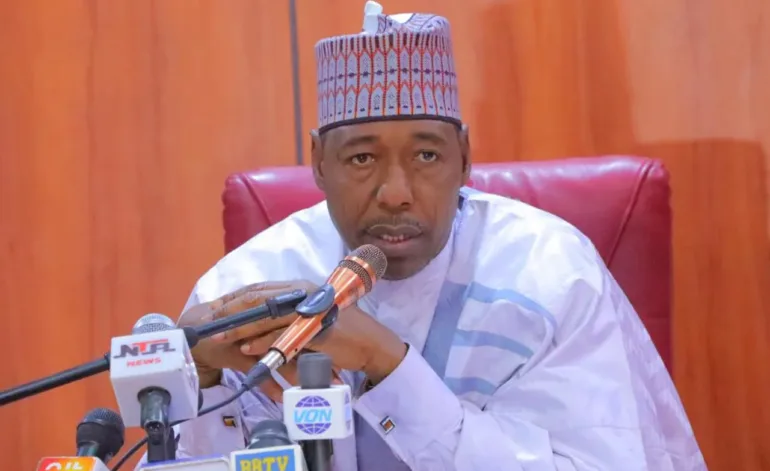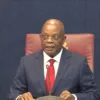Borno State Governor, Babagana Zulum, has approved a two-year tax waiver for traders affected by the September 2024 flood disaster and the Maiduguri Monday Market fire incident.
The Chairman of the Borno State Internal Revenue Service (BO-IRS), Prof. Ibrahim Bello, made this announcement during a press briefing in Maiduguri on Sunday. He explained that the initiative is aimed at supporting the economic recovery of affected businesses and alleviating their financial burdens.
This tax waiver is part of the state government’s broader efforts to reform tax administration, improve the ease of doing business, and foster economic growth. Prof. Bello highlighted that the move will help businesses recover and reinvest in their operations without the additional strain of tax obligations.
The September 2024 floods severely disrupted Borno’s economy, displacing thousands and causing widespread damage to businesses and homes. Similarly, the fire that ravaged the Maiduguri Monday Market, a key commercial center, left traders with significant losses.
According to the United Nations Office for the Coordination of Humanitarian Affairs (OCHA), over 300,000 people have been temporarily displaced across 30 relocation sites in the Maiduguri Metropolitan Council (MMC), Jere, and Konduga local government areas.
Governor Zulum’s tax waiver aims to ease the recovery process for traders, enabling them to rebuild and sustain their businesses. Prof. Bello noted that the Borno State government has made substantial progress in modernizing its tax system, with tax revenues now being directed toward crucial infrastructure projects, including road construction and urban renewal efforts in areas such as Jiddari, Umarari, GRA, Bulumkutu, Custom, and Chad Basin.
The waiver is expected to provide significant financial relief to struggling businesses, enhancing local trade and boosting investor confidence. This initiative will not only support economic recovery but also strengthen the resilience of businesses and the economy in the face of future challenges.
Furthermore, as the state continues to improve its tax systems, the waiver is likely to encourage greater voluntary tax compliance, creating a more sustainable and cooperative fiscal environment for the long term.


